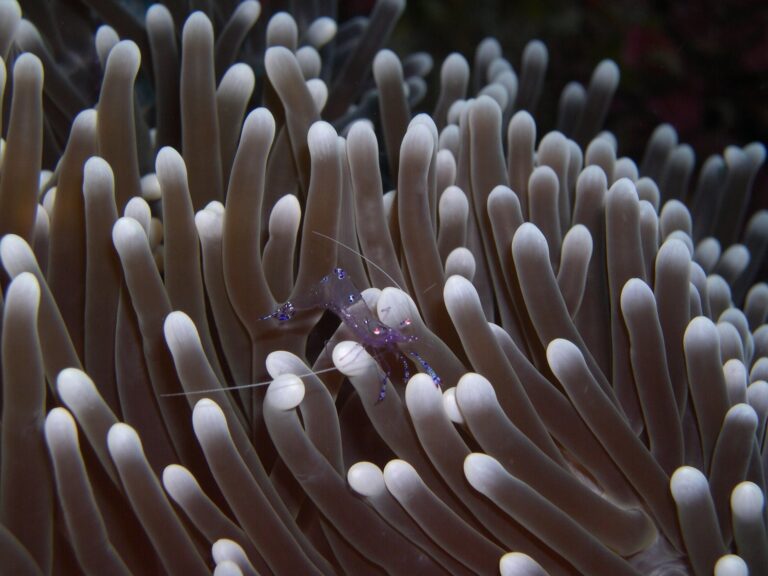Introduction
The vast expanse of our oceans is not only crucial for sustaining life on Earth but also plays a pivotal role in regulating the planet’s climate. As we face the pressing challenges of climate change and environmental degradation, the need for comprehensive ocean conservation strategies has never been more urgent. In this blog post, we will explore the critical importance of ocean conservation and delve into the promising role of ocean-based renewable energy in mitigating environmental threats while fostering sustainable development.
Biodiversity and Ecosystem Health
Ocean conservation plays a pivotal role in maintaining biodiversity and ensuring the health of marine ecosystems. The oceans are home to a vast array of species, many of which are not found anywhere else on Earth. The intricate web of life in the ocean contributes to the balance of ecosystems, with each species playing a unique role in the functioning of the marine environment.
Preserving biodiversity is crucial for various reasons. Firstly, diverse ecosystems are more resilient to environmental changes, ensuring their stability over time. Secondly, many species in the ocean contribute to the regulation of populations of other species, preventing the overpopulation of certain organisms that could disrupt the balance of the ecosystem. Additionally, marine biodiversity is a source of genetic diversity, which can be essential for the adaptation and survival of species in the face of changing environmental conditions.
By promoting ocean conservation, we actively contribute to the protection of biodiversity, preserving the delicate balance that sustains life beneath the waves.
Climate Regulation
The oceans play a critical role in regulating the Earth’s climate. They act as a massive sink for carbon dioxide, absorbing and storing vast amounts of this greenhouse gas. Phytoplankton, tiny marine organisms, contribute significantly to this process through photosynthesis, converting carbon dioxide into oxygen. The health of these phytoplankton communities is vital for maintaining the planet’s carbon balance and, consequently, mitigating climate change.
Furthermore, ocean currents influence global weather patterns, redistributing heat around the planet. Healthy oceans help stabilize temperature extremes and contribute to the regulation of weather systems. By conserving the oceans, we contribute to the mitigation of climate change, emphasizing the interconnectedness of marine and terrestrial ecosystems.
Economic Significance
The oceans are a source of immense economic value, providing livelihoods for millions of people worldwide. Fishing, tourism, and shipping industries depend on the health and abundance of marine resources. Sustainable ocean management practices ensure the long-term viability of these industries, preserving jobs and economic stability for coastal communities.
Additionally, pharmaceuticals, biotechnology, and other industries benefit from the unique biodiversity found in the oceans, offering potential solutions to various human health challenges. Investing in ocean conservation is not only an environmental imperative but also an economic one, as it safeguards the resources that support numerous industries and contribute to global economic well-being.
Threats to Ocean Health
Despite their critical importance, oceans face numerous threats that compromise their health. Overfishing, pollution, climate change, and habitat destruction are among the key challenges. Overfishing depletes fish stocks and disrupts marine food webs, while pollution from plastics, oil spills, and agricultural runoff harms marine life and ecosystems.
Climate change exacerbates these issues, leading to rising sea temperatures, ocean acidification, and extreme weather events. These factors collectively pose a significant threat to the delicate balance of marine ecosystems. Recognizing and addressing these threats through effective conservation measures is essential for ensuring the long-term health and sustainability of our oceans.
Marine Protected Areas (MPAs)
Marine Protected Areas (MPAs) play a crucial role in preserving the delicate balance of marine ecosystems. These designated zones aim to safeguard marine life by restricting human activities within their boundaries. MPAs serve as sanctuaries for marine species, providing a refuge where they can thrive without the constant threat of overfishing, habitat destruction, or other human-induced disturbances. These areas not only protect biodiversity but also contribute to the overall health of oceans.
From an SEO perspective, individuals interested in marine conservation may search for information on the importance of MPAs, their impact on marine life, and how they contribute to sustainable fisheries. Including keywords like “marine protected areas benefits” or “importance of MPAs in ocean conservation” can enhance the visibility of this section.
Sustainable Fishing Practices
Promoting sustainable fishing practices is essential for maintaining healthy fish populations and ensuring the long-term viability of fisheries. Sustainable practices involve adopting fishing methods that minimize environmental impact, reduce bycatch, and prevent overfishing. By implementing responsible harvesting techniques and adhering to catch limits, the fishing industry can contribute to the preservation of marine ecosystems.
For SEO optimization, incorporating keywords such as “sustainable fishing methods,” “responsible fishing,” or “impact of sustainable practices on fisheries” can attract readers interested in sustainable seafood and ocean conservation.
Pollution Prevention and Cleanup
Efforts to prevent and clean up marine pollution are paramount in safeguarding ocean health. Pollution from various sources, including plastic debris, oil spills, and chemical runoff, poses a significant threat to marine life. Engaging in proactive measures such as beach cleanups, reducing single-use plastics, and implementing stricter regulations on industrial waste discharge are crucial steps towards mitigating the impact of pollution on oceans.
To enhance SEO, including keywords like “marine pollution prevention,” “ocean cleanup initiatives,” or “plastic-free ocean campaigns” can attract individuals seeking information on practical ways to address and combat marine pollution.
Climate Change Mitigation Strategies
Climate change poses a severe threat to marine ecosystems through rising sea temperatures, ocean acidification, and disruptions to weather patterns. Implementing strategies to mitigate climate change impacts on oceans is crucial. These strategies may include promoting renewable energy sources, reducing carbon emissions, and supporting research on resilient marine species.
From an SEO standpoint, incorporating keywords like “ocean climate change solutions,” “mitigating climate impact on oceans,” or “renewable energy in marine conservation” can draw attention from readers interested in the intersection of climate change and ocean health.




